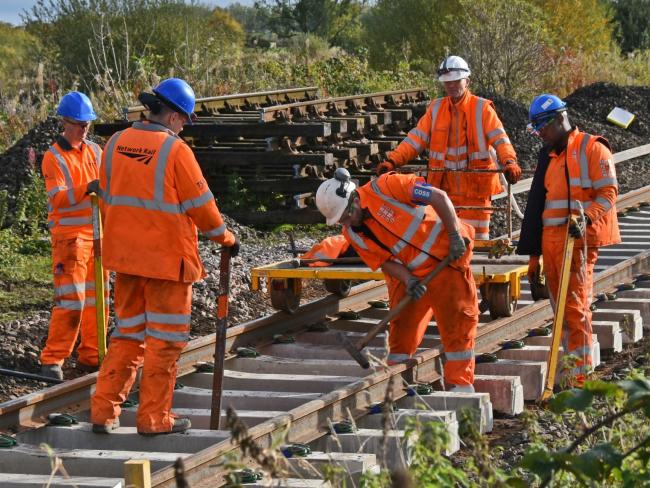24 April 2025

Steel is vital for railways, construction and other industries. Photo M Barratt / shutterstock.com.
The whole steel industry in Britain remains at risk. British Steel’s Scunthorpe steel plant has been saved along with 2,700 jobs, at least for now. But that’s only an initial step, more action is needed to secure the industry’s future.
On a Saturday 12 April, parliament debated and passed legislation which allows the government to direct the board and staff of British Steel and to order raw materials to keep the last two functioning blast furnaces in Britain in operation.
Close down
Earlier that day it was clear to workers in Scunthorpe that something had to be done, and quickly. British Steel’s owners, Chinese firm Jingye, had confirmed their intention to close down the blast furnaces. That was despite months of negotiations with the British government which offered generous financial assistance.
This action saves the blast furnaces rom immediate closure; that’s important because they are very expensive to restart once cold. But British Steel wasn’t nationalised. And far from being the saviour of the steel industry, the Labour government’s action has done little more than defer critical decisions.
Vital
The Scunthorpe facility is vital for providing steel products to the construction and automotive industries along with steel rails to Britain’s railways. Had it closed, Britain would have been the only G7 nation to have no primary steel making plant.
‘Steel unions welcomed the move, but argue for more action.’
Trade unions representing steel workers broadly welcomed the move, but they argue more action is needed. Unite says this should be a step on the road to nationalisation and called for UK steel to be used in all infrastructure projects. Community says it wants to work with the government to build a thriving steel industry.
The government set up a Steel Council in January. It claims it would do what is necessary to help secure Britain’s steelmaking for the future. But it realised almost too late that the Scunthorpe owners had not ordered the raw materials needed to keep the furnaces going, which led to the emergency legislation.
Temporary
The fight for steel in Britain is far from won. This is only a temporary reprieve for Scunthorpe – and other plants are under threat. Unions have set out wide ranging plans, which go beyond urgent action.
Unions made a case for the future of Port Talbot, in South Wales – but Tata Steel was recently allowed to shut down blast furnaces there with no similar government intervention. Former steel workers there are asking why.
